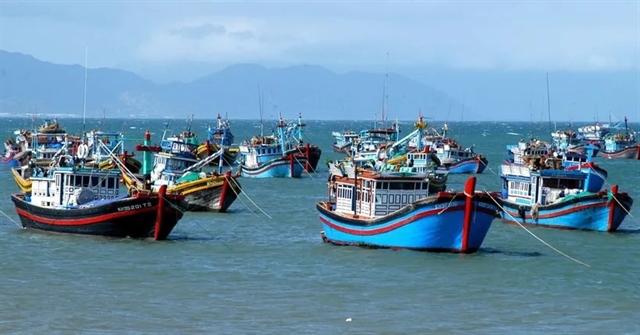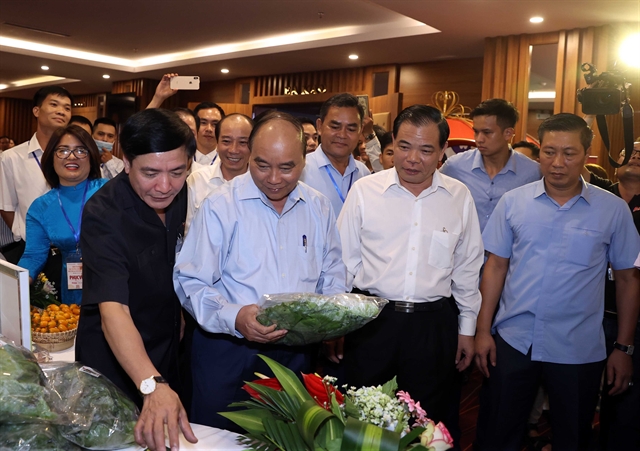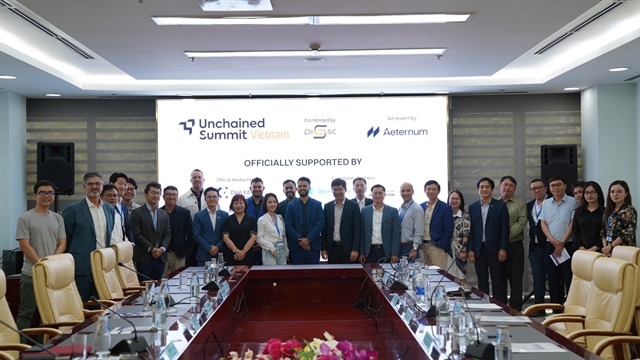 Society
Society


|
| Prime Minister Nguyễn Xuân Phúc visits booths with agricultural products in Buôn Ma Thuột City. VNA/VNS Photo Thống Nhất |
ĐẮK LẮK — Though the global economy has been ravaged by the COVID-19 pandemic, Việt Nam has maintained economic growth thanks to agriculture, Prime Minister Nguyễn Xuân Phúc has said.
He said the agricultural sector is always the most important pillar of the country’s economy.
He made the statement at a dialogue in Buôn Ma Thuột City, Đắk Lắk Province on Monday with some 400 participants, including farmers, Cabinet ministers, scientists, researchers and agricultural businessmen.
Phúc said this year, many workers have lost their jobs due to COVID-19 pandemic. While the unemployment rate among people in urban areas is high, workers in the agricultural sector and rural areas of Việt Nam are almost unaffected.
Việt Nam’s agricultural export turnover this year is expected to reach US$42 billion, making it one of the leading countries in Asia in term of exports, the PM said.
The country has had more than half of communes meet new rural standards, while the number of households suffering from hunger decreased by 70 per cent compared to the same period last year.
“Although facing a pandemic, we basically have bumper crops including rice, aquatic products and fruits. It can be said that the agricultural sector has won comprehensively," PM Phúc said.
However, he said a lot of problems should be addressed to boost the development of agricultural and rural areas, especially to improve the lives of farmers.
The Prime Minister said it was necessary to cope with challenges including market access and low processing rate of agricultural products. Securing good strains of plants and animals as well as ending fake fertilisers are also problems.
He said he hoped the dialogue would help farmers by answering their queries, solving their problems, or helping the Government design proper policies.
Nearly 1,500 questions were prepared for the dialogue and classified into four main topics: credit policies for farmers engaged in animal husbandry and farming affected by the COVID-19 pandemic, the Government’s support for fishermen as well as plans for coffee cultivation.
Đỗ Quý Toản, a farmer from Krông Ana in Đắk Lắk, said the first batch of coffee has been exported to the European Union under Europe-Việt Nam Free Trade Agreement (EVFTA) with tariffs of zero per cent. This is a huge competitive advantage for Việt Nam’s coffee industry.
Toản said he was concerned about the Government’s solutions to achieve a sustainable coffee processing and export industry.
The price of coffee has recently dropped substantially, causing worry for local farmers. He asked the PM if coffee growers should keep growing the crops associated with the history of the Central Highlands and about the Government’s plans for the plant.
In response to Toản’s question, Phúc said coffee was a key product of Việt Nam. The quality of Vietnamese coffee is very good and highly appreciated all over the world, so he advised people to continue growing coffee. However, Phúc said it was necessary to make a proper plan for the plant.
Farmers Võ Tuấn Tú from Bình Định Province and Lê Minh Quyền from Khánh Hòa Province said farmers engaged in aquaculture faced difficulties due to dropping prices and struggles to find markets for their products. They wanted to know the Government’s policies to help farmers as well as measures to develop seafood industry.
Minister of Agriculture and Rural Development Nguyễn Xuân Cường, who was also present at the dialogue, said the consumption of seafood products has stalled due to the COVID-19 pandemic.
To solve the problem, the Government has asked ministries and agencies to adopt solutions to remove difficulties for farmers.
After the second quarter of this year, the export of seafood products has returned, Cường said, adding that seafood export value has so far reached nearly US$9 billion.
The Ministry of Agriculture and Rural Development (MARD) was developing a strategy to obtain 23 million tonnes of seafood by 2030, he said.
Answering a question raised by farmer Phạm Lê Mạnh from Đắk Lắk on measures to expand the number of agricultural processing plants in the Central Highlands, the PM said progress has been made in the agricultural processing industry.
Fifteen plants have been put into use this year, however, he said, there was room for development.
“The State will create favourable condition for enterprises investing in agricultural processing,” PM Phúc said, adding that they would be supported in terms of capital and land allocation.
Nguyễn Sỹ Thanh, a farmer from Đắk Nông Province, said the Government has implemented many incentive programmes for agriculture production in the Central Highlands, including loans for coffee cultivation.
“Does the State Bank of Việt Nam have preferential credit programmes for farmers who face difficulties due to dropping price, epidemics in livestock and plant cultivation?” she asked.
Đào Minh Tú, deputy governor of State Bank of Việt Nam (SBV), said the SBV and MARD have implemented programmes with a total investment capital up to VNĐ12 trillion for coffee cultivation in five Central Highlands provinces and other policies to support farmers. Under the programmes, farmers can access loans of up to VNĐ3 billion without collateral. — VNS




